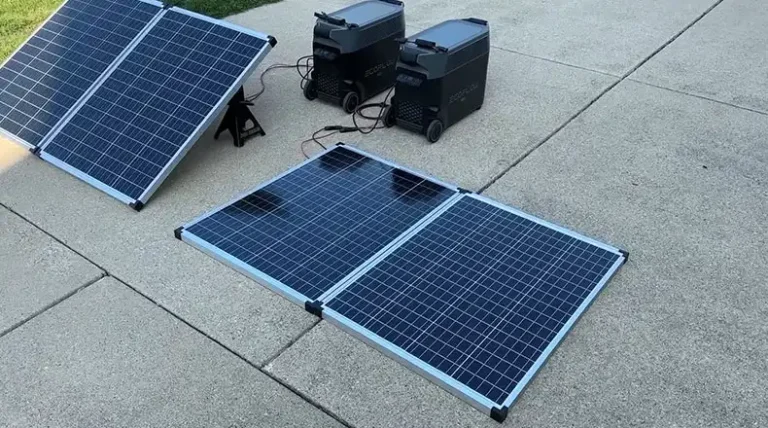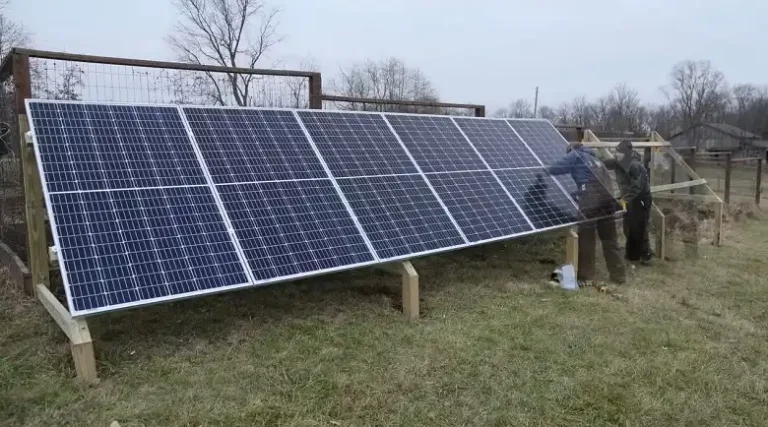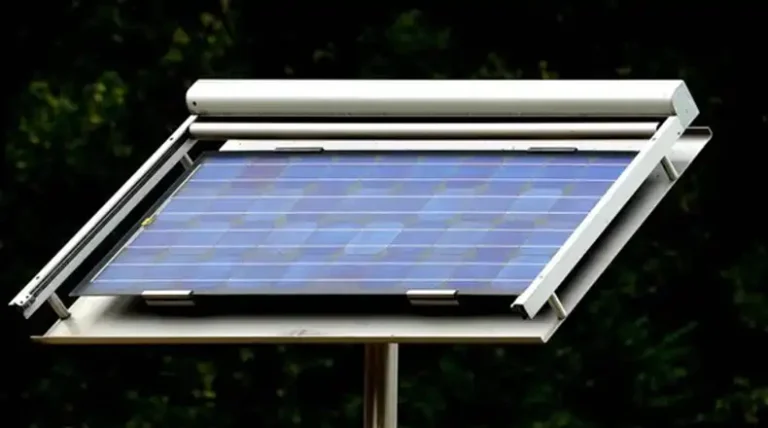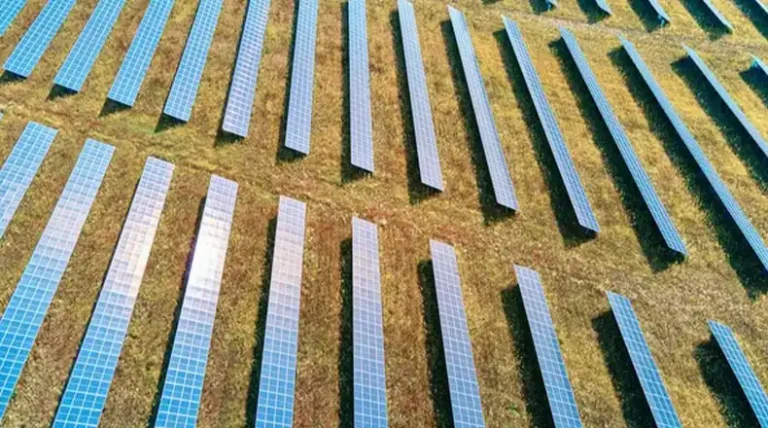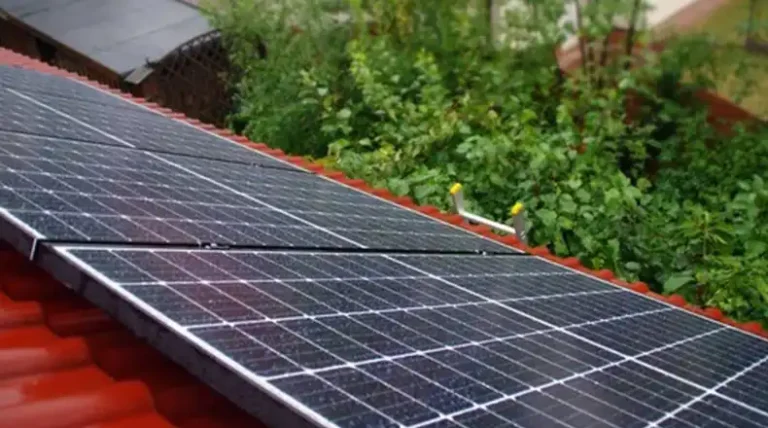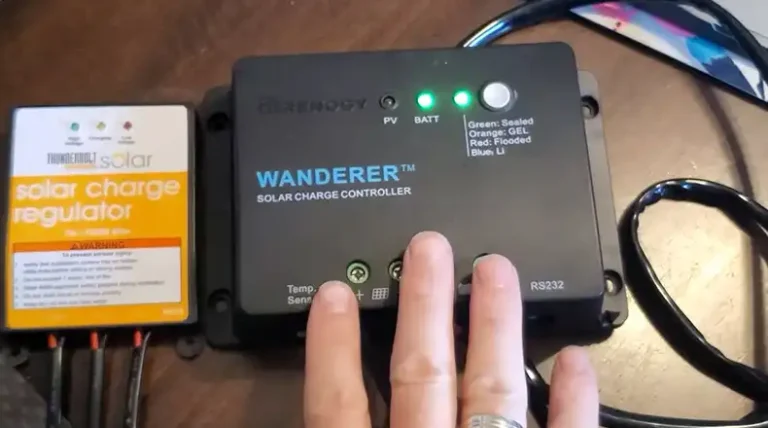Can You Mix Different Wattage Solar Panels? Is It Safe?
In the ever-expanding world of solar energy, the decision to install solar panels on your property is a significant step towards a more sustainable and cost-effective future. However, when considering your solar panel setup, you may wonder if it’s possible to mix solar panels with different wattages.
Simply put, yes, you can mix different wattage solar panels, but it comes with some certain bargains. This article will explore the complexities, advantages, and considerations of mixing different wattage solar panels to help you make an informed decision.
All you’re asked to do is read the entire article without skipping any part. So, let’s get started.
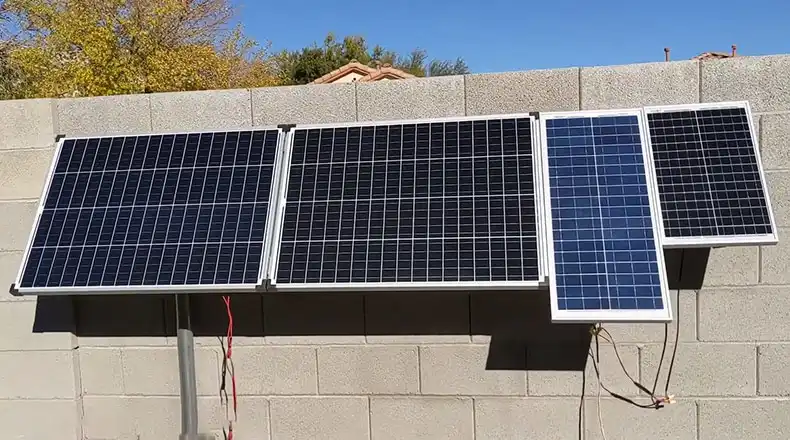
Is It Possible to Mix Different Wattage Solar Panels?
Certainly, combining solar panels with varying wattages is a possibility, but it’s not the typical route chosen by solar enthusiasts. The reason is simple: mixing different wattage panels can compromise the overall system’s efficiency and power output. This happens because the entire system adapts to the lowest voltage or amp level among the panels.
For instance, connecting a 200-watt panel with a 100-watt panel results in the system operating at just 100 watts, despite the potential of the 200-watt panel to deliver more.
If you find yourself in a situation where mixing different wattage solar panels is a necessity, then being meticulous in your choices is paramount. Opt for panels that share not only similar wattage but also voltage and current ratings. This careful selection goes a long way in minimizing efficiency losses and maintaining the system’s power output.
Compatibility Check Before Mixing Different Wattage Solar Panels: The Key Factor
When it comes to mixing solar panels with varying wattages, the primary concern is compatibility. In most cases, it is entirely possible to combine panels with different wattages within a solar array. However, there are a few things to check –
Voltage Compatibility
Solar panels within a single array should have similar voltage ratings. Mismatched voltage ratings can lead to issues such as reduced efficiency and potential damage to your inverter or other system components. To ensure compatibility, it’s advisable to seek the guidance of a solar professional. They can evaluate the voltage compatibility of your chosen panels and design your system accordingly.
Efficiency Impact
The mixed panel setup may impact the overall efficiency of your system. This can occur because some panels might underperform when compared to others. Such as:
Performance Variability: Higher-wattage panels might outperform lower-wattage panels, potentially causing the latter to operate below their capacity.
Mismatch Loss: The difference in performance can lead to mismatch loss, where the overall energy output of the system is lower than expected.
Inverter Considerations
Your inverter plays a crucial role in managing the electricity generated by your solar panels. When mixing panels with different wattages:
Inverter Compatibility: Ensure that your inverter is capable of handling the varying wattages and voltages of your panels. If not, you might need to consider alternatives such as microinverters or power optimizers.
Optimal Energy Harvest: The right choice of inverter can help maximize the energy harvest from your mixed solar panel setup.
Advantages of Mixing Solar Panels
When it comes to building a robust and efficient solar energy system, considering the advantages of mixing solar panels with varying wattages is a smart move. This approach can bring a range of benefits, making it a viable choice for homeowners and businesses looking to harness the full potential of solar power. For example:
1. Cost-Effectiveness
- You can take advantage of discounted or surplus panels without replacing your entire array.
- This can save you money on your initial investment.
2. Space Utilization
- Combining different wattage panels can help you make the most of the available space on your roof.
- It’s an efficient way to maximize your energy generation.
3. Flexibility
- As technology evolves, you can easily upgrade your system by adding newer, higher-wattage panels.
- This flexibility ensures your system remains up-to-date.
Considerations When Mixing Panels
Mixing solar panels with different wattages can be a strategic move to harness maximum energy from your solar setup. However, this choice comes with a few important considerations that deserve thoughtful attention. Here, we’ll explore these crucial aspects to help you make an informed decision:
1. Mismatch Loss
- Mixing panels may result in mismatch loss, where higher-wattage panels drag down the performance of lower-wattage panels.
- Proper system design and monitoring can mitigate this issue.
2. Professional Guidance
- Seeking advice from a solar professional is highly recommended when mixing panels.
- They can assess your specific situation and ensure your system is configured for optimal performance.
3. Warranty Implications
- Mixing panels may affect the warranty terms provided by manufacturers.
- Be sure to review the warranty documents of all panels involved.
Key Takeaways
- Select panels with akin voltage ratings to harmonize the system’s performance.
- Opt for panels that share similar current ratings to ensure a balanced setup.
- When panels have identical voltage ratings, consider connecting them in parallel. Conversely, if their current ratings match, connecting them in series is a sound approach.
- Don’t forget to employ a charge controller capable of handling the total wattage of your combined panels. This ensures smooth and safe operation.
NOTE: One important caveat to bear in mind is that mixing panels from different brands is not recommended. This is due to the potential variations in electrical characteristics across brands, which could introduce complications to your solar system.
Conclusion
Lastly, it can be said that it is indeed possible to mix solar panels with different wattages within your solar energy system. However, the success of this depends on various factors, such as voltage compatibility, efficiency considerations, and inverter compatibility. While there are advantages to mixing panels, it’s crucial to weigh them against potential drawbacks and seek professional advice to ensure a harmonious and efficient solar panel setup.

